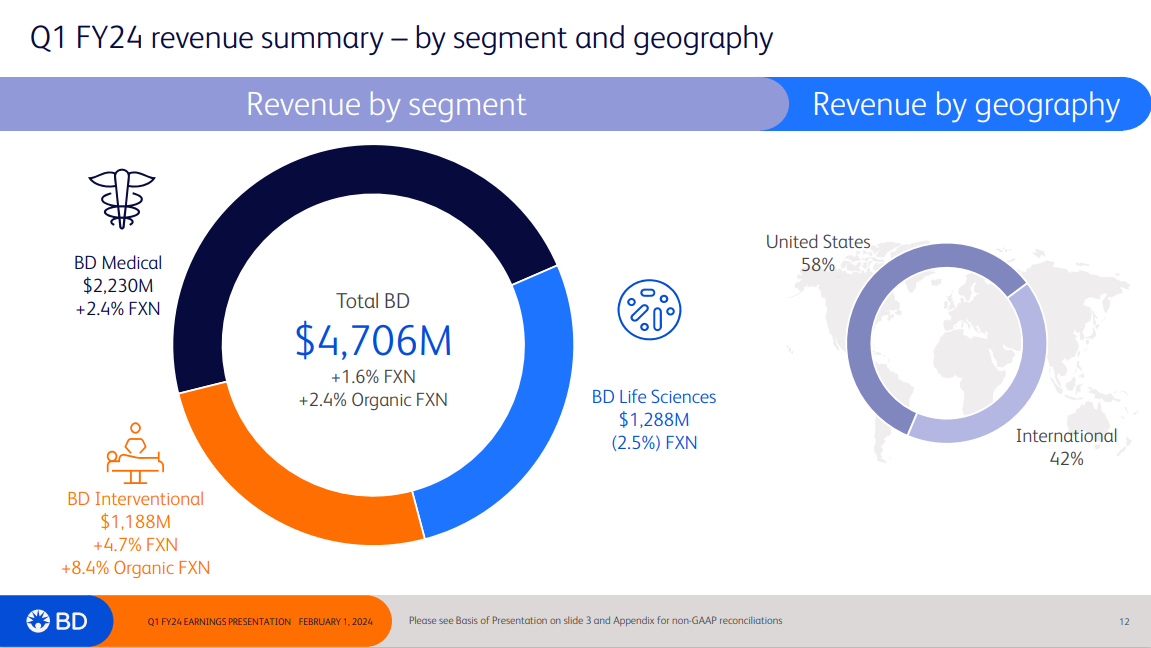Real estate investors accounted for 26.1% of low-priced home purchases in the U.S. during the fourth quarter of 2023, a record-high share, according to a new report from Redfin. Investors bought only 13.6% of mid-priced homes and 15.9% of high-priced homes sold during the same period.
Redfin defined low-priced homes as falling into the bottom third of local sales prices. The median price investors paid for homes in the fourth quarter was $453,271, above the national median, according to Redfin data. That may be due to an increase in investor home purchases in several California cities, where many expensive homes fall into the low-priced tier relative to local prices.
Redfin defines an investor as an institution or business purchasing a home, so the data may not reflect rental property purchases by some individual investors and may also include homes bought for personal use through family trusts. Nevertheless, the data show investors are increasingly seeking cheaper properties, and Redfin real estate agents report high demand for properties below market value as well.
There may be a few reasons for this. First, borrowing rates peaked in the fourth quarter of 2023, and investors may have found it easier to finance low-priced home purchases and remodels with cash.
Second, as homebuyers seek more affordable homes to counteract the impact of mortgage rates on housing payments, and renters seek ways to trim their budgets amid inflated prices, flippers and rental property owners alike may be scooping up lower-priced properties to meet demand and capture higher returns.
Let’s take a deeper dive into the data.
Investor Purchases Are Declining Slower While Their Market Share Is Increasing
Investor home purchases surged in 2021, when low mortgage rates encouraged real estate investment activity, but have declined year over year each quarter since the third quarter of 2022. The steepest decline occurred in the first quarter of last year when investors purchased 49% fewer homes than they had the year prior. Factors such as rising interest rates and slowing rent increases, which decreased profit margins for investors, are likely to blame for the pullback.
Since then, the year-over-year decline has been shrinking. In the fourth quarter of 2023, investor home purchases declined 10.5% year over year, the smallest decrease since investors started to retreat. That means only 46,419 U.S. homes were sold to investors, the lowest fourth-quarter sales value since 2016.
However, the overall housing market experienced an even steeper slowdown in sales. Home purchases fell 12.2% year over year to 251,462. For context, home sales haven’t been this slow in the fourth quarter since 2012.
Likely, as a result, the share of homes purchased by investors rose year over year in the fourth quarter, with investor purchases making up 18.5% of all home sales. That’s up from 18.1% in the fourth quarter of 2022.
Single-family homes continue to make up the largest share of investor home purchases, at 68.6%. But condos and co-ops are making up a slightly larger share, accounting for 19.2% of investor sales, compared to 17.9% in the fourth quarter of 2022.
Investors Are Buying More Homes in California and Chicago
While investor home purchases declined year over year nationally, they’re becoming rapidly more prevalent in certain areas of the country, particularly pricey markets in California. Year over year, investor home purchases rose 25% in Riverside, 18% in San Jose, and 12.6% in Anaheim, for example.
In Anaheim, investors purchase more than a quarter of homes sold, spending a median of $1.26 million per property. The market offers high average daily rates and occupancy rates for short-term rental properties, according to AirDNA, thanks to being the home of Disneyland.
Chicago is also drawing more interest from investors, with investor home purchases up 20.9% year over year. In Chicago, investors are paying well below both the national median and the Chicago median, spending $234,750 for the typical property.
The table shows the top 10 markets, ranked by the year-over-year increase in investor purchases, along with their median sales price and investor market share.
| Metro | YoY Change in Investor Purchases | Median Investor Purchase Price | Investor Share of Total Home Purchases |
|---|---|---|---|
| Riverside, CA | 25% | $541,000 | 21.5% |
| Chicago | 20.9% | $234,750 | 15.5% |
| San Jose, CA | 18% | $1,589,000 | 17% |
| Anaheim, CA | 12.6% | $1,255,000 | 25.5% |
| Sacramento, CA | 11.8% | $554,000 | 21.5% |
| San Diego | 11.5% | $915,000 | 25.1% |
| Los Angeles | 4.5% | $1,000,000 | 21.5% |
| Warren, MI | 4.2% | $165,000 | 10.1% |
| San Francisco | 0.2% | $1,805,000 | 21.8% |
| Las Vegas | -0.2% | $390,000 | 23% |
The Impact of Investor Purchases on the Housing Market
In recent years, there has been criticism that investor purchases of affordable homes are worsening, or even entirely causing, the affordable housing crisis. The theory is that investors are able to make more attractive, all-cash offers on starter homes, outbidding would-be homebuyers, raising local home prices, and then charging exorbitant rents to people who can’t afford to become homeowners.
One review found that investors targeted African-American neighborhoods in Atlanta, widening racial disparities in homeownership and that home prices increased more rapidly in areas with more investor activity. What’s not clear from the review is whether investors caused the accelerated appreciation or if they bought in opportune neighborhoods that were poised to appreciate faster, with or without their influence.
As interest rates climbed and investors began scooping up more affordable homes, some have advocated for policies that would push investors out of neighborhoods. For example, the End Hedge Fund Control of American Homes Act would eventually prohibit hedge funds from owning single-family homes and impose heavy penalties on taxpayers who did not abide, putting the money toward down payment grants for homebuyers. The Stop Predatory Investing Act would end interest and depreciation deductions for investors who acquire at least 50 new single-family homes after the proposed law went into effect.
These potential policies focus on medium-to-large and mega-investors, but small investors who own fewer than 10 properties account for the largest share of single-family home purchases, at about 45%, according to CoreLogic. In fact, mega-investors are already pulling back from buying homes. There’s also evidence that concerns about investors’ impact on housing affordability may be unfounded.
For example, a recent study on single-family REITs, which own a small portion of the housing supply, found no evidence to suggest that SFR property holdings impacted residential homebuyers or caused home prices to increase.
Even a screeching halt in real estate investment activity wouldn’t be likely to have the intended effect of making homeownership more affordable, suggests a Dutch study that examined the impact of a local ban on rental property investment.
While the new law increased the homeownership rate in the area, it didn’t reduce home prices or make homebuying more accessible. Instead, it reduced the supply of rental homes, causing rents to increase and pushing younger, lower-income families out of the neighborhood. The effect was a less diverse composition of residents. In other words, the law caused gentrification rather than creating more opportunities for low-income people to own homes.
About 34% of U.S. households are renters, and expanding access to affordable rental homes is key to achieving housing affordability in the United States. It’s important to consider the effect of any attempt to improve access to homeownership on rental housing. As investors purchase more homes priced in the bottom third of local home prices, that may stir more criticism that rental property owners are stripping opportunities from would-be homeowners and taking advantage of everyday people who seek affordable rents.
But from another perspective, real estate investors are buying more affordable homes at a time when people need more affordable rentals because they are priced out of homeownership and squeezed by inflation. It’s true that investors are motivated by profit, but profit comes from meeting demand—providing families with the housing they need.
That’s not to say that investor purchases of single-family homes are necessarily improving housing affordability, but there is evidence that removing investors from the market reduces the availability of rental housing. Other strategies, such as reforming zoning laws, providing incentives for and allocating public land for affordable housing development, and improving low-income housing voucher programs, are likely to have a greater impact on housing affordability than focusing on investor market share.
The Bottom Line
Redfin data shows that investors purchased a record share of affordable homes in the fourth quarter of 2023. While investor purchases continue to decline relative to peak investment activity during the pandemic, they’re dropping at a slower rate and declined less in the fourth quarter than overall home purchases.
It’s unlikely we’ll see a quick rebound in investor purchases, according to Redfin senior economist Sheharyar Bokhari, due to low housing supply and lackluster rents. Even if investor purchases increase this year, policy efforts aimed at restricting real estate investment activity are unlikely to help prospective residential homebuyers find affordable homes.
Make Easier and Smarter Financing Decisions
Deciding how to finance a property is one of the biggest pain points for real estate investors like you. The wrong decision may ruin your deal.
Download our What Mortgage is Best for Me worksheet to learn how different mortgage rates impact your deal and discover which loan products make the most sense for your unique position.

Note By BiggerPockets: These are opinions written by the author and do not necessarily represent the opinions of BiggerPockets.















